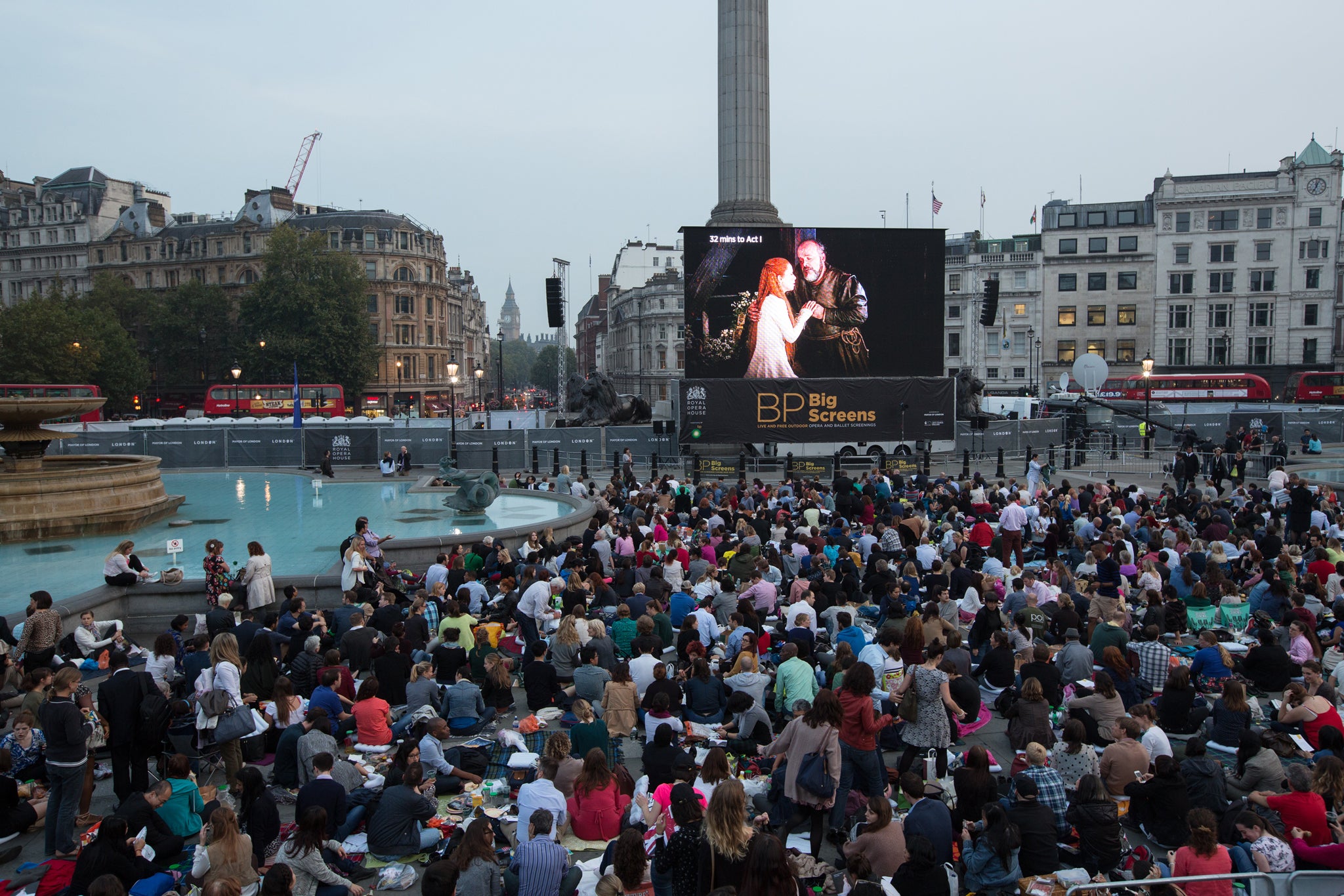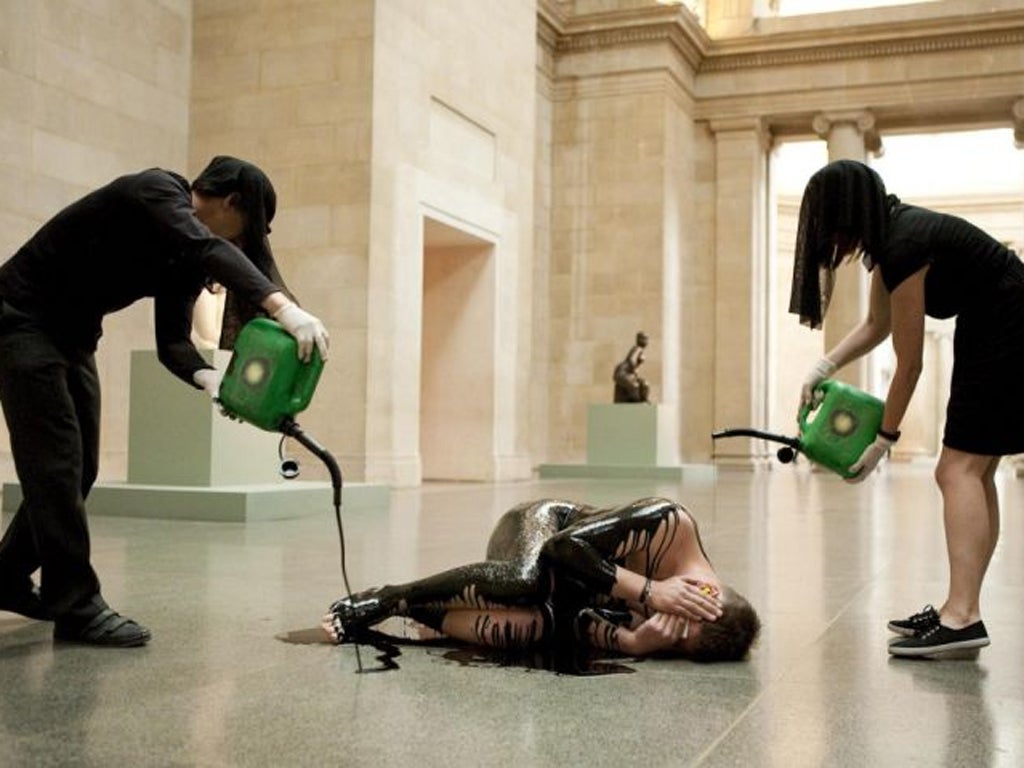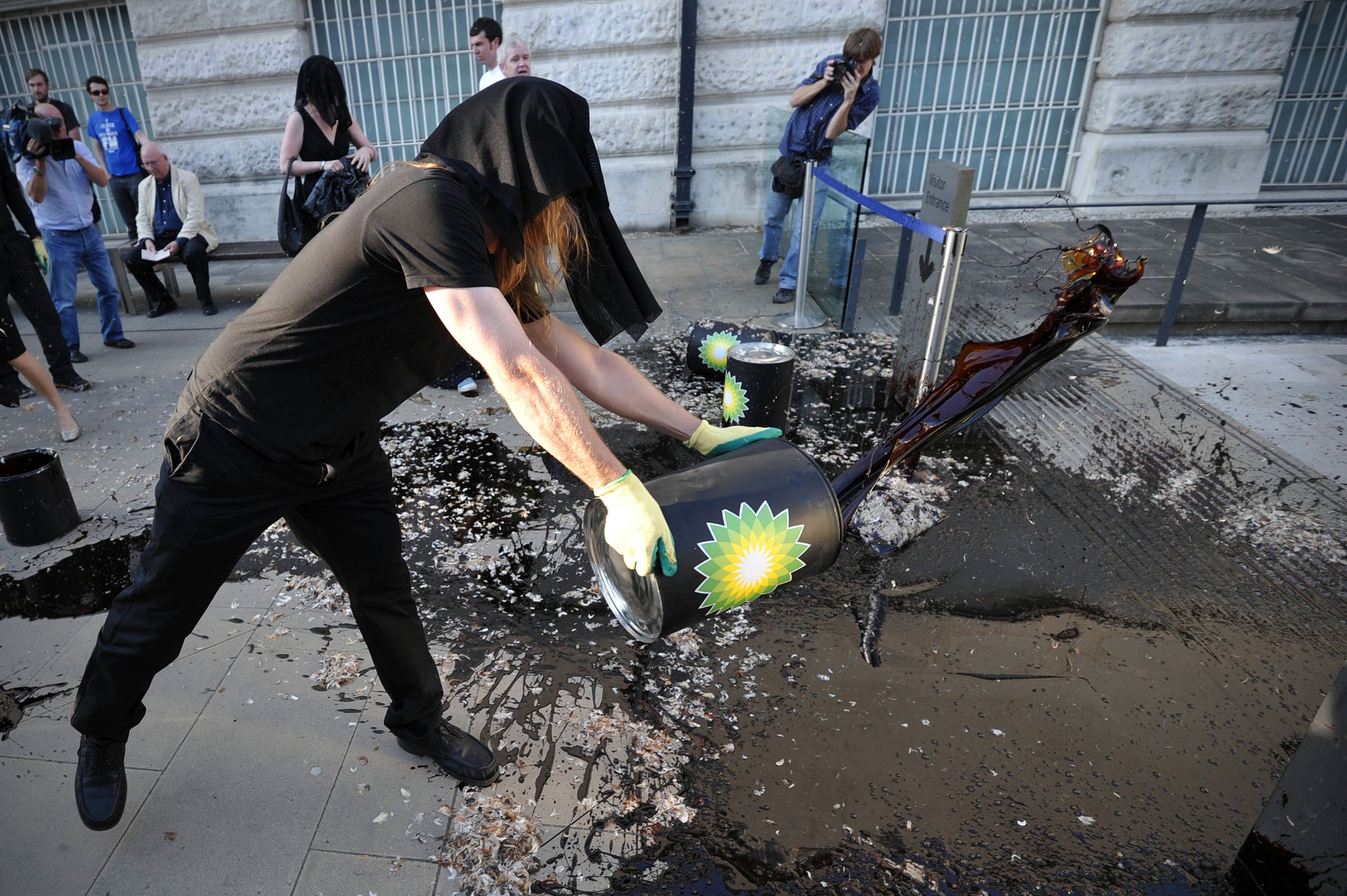Royal Opera House urged to axe BP sponsorship by classical music luminaries
Seventy five composers and academics have written an open letter saying oil company BP 'represents a stain on the Royal Opera House's international reputation'

Royal Opera House has been urged to sever its ties with oil and gas giant BP after 75 composers and music academics publicly condemned the association.
In an open letter, leading luminaries of the opera and classical music world have urged the ROH to cut its links with BP ahead of a sponsored event across the country on Friday evening that will see big screens “emblazoned with the oil company’s logo”.
“We are composers, musicians and music researchers who care passionately about classical music, the performing arts and the environment, and believe that the BP logo represents a stain on the Royal Opera House’s international reputation,” the letter to the Guardian read.
Highlighting BP’s role in the Deepwater Horizon spill in the Gulf of Mexico and the company’s perusal of new sources “in the fragile Arctic, and in the Canadian tar sands, where it tramples the rights of indigenous people”, the letter urged the Royal Opera House to “join the growing wave of universities, foundations and faith organisations cutting their ties with the fossil fuel industry”.

Signed by names in the classical world including Simon Holt, composer and professor of composition at the Royal College of Music, and Pulitzer Prize for Music winner John Luther Adams, the letter concludes: “Little more than a decade ago, tobacco companies were seen as respectable partners for public institutions to gain support from – that is no longer the case.
“Now is the time to also draw a red line on funding from the fossil fuel industry.”
BP’s sponsorship of some of the UK’s biggest cultural institutions, including the Tate, the British Museum, the National Portrait Gallery and the Royal Opera House, has provoked a number of protests since the BP oil spill in 2010.
At Tate Britain’s summer party of the same year, two undercover protesters dropped bags of dark molasses on the floor concealed under their dresses.
In 2011, a group of artists with their heads covered used BP-branded petrol cans to pour oil-like liquid over a naked protester in the middle of Tate Britain.

In light of recent Government funding cuts to the arts, financial support from BP, which has sponsored leading British cultural institutions for over 20 years, has been seen as a necessary lifeline.
In a statement, the Royal Opera House said the income generated from corporate partnerships “is vital to the mixed economy of successful arts organisations and enables each of us to deliver a rich and vibrant cultural programme.”
“BP has, for many years, made a significant contribution to the arts and cultural life of this country including support for the Royal Opera House since 1988,” it said.
“We are grateful to BP for their long term commitment, sharing the vision that our artistic programmes should be made available to the widest possible audience.”
Join our commenting forum
Join thought-provoking conversations, follow other Independent readers and see their replies
Comments
Bookmark popover
Removed from bookmarks